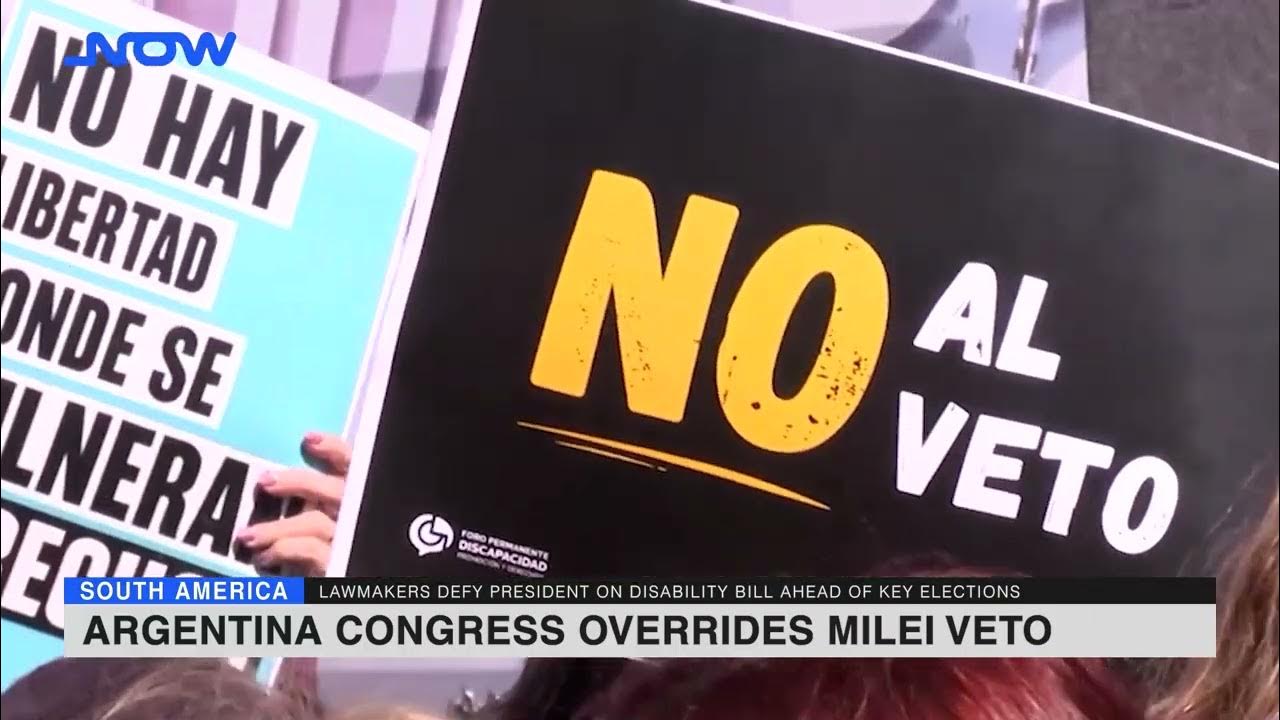Argentina's Congress Overturns President Milei's Veto
Argentina's Congress has overridden President Javier Milei's veto, marking a significant setback for his economic reform agenda amid mounting political and economic turmoil.

Argentina’s Congress delivered a major blow to President Javier Milei’s sweeping economic reform program by overriding his recent veto, an event that underscores the deepening rift between the executive and legislative branches as the country grapples with economic and social upheaval.
The override comes at a critical juncture for Milei, whose administration has been defined by radical austerity measures, aggressive deregulation, and efforts to stabilize the peso. While his policies have succeeded in sharply reducing inflation and securing a $20 billion IMF bailout, they have also triggered a wave of corporate bankruptcies, surging unemployment, and widespread social discontent. The override signals growing resistance to Milei’s approach, even as his government insists that such reforms are essential for long-term stability.
Political Fallout and Legislative Pushback
The congressional override is widely interpreted as a repudiation of Milei’s uncompromising style and his reliance on executive authority to push through controversial reforms. Lawmakers from across the political spectrum cited the mounting social costs and the lack of consensus-building as reasons for rejecting the president’s veto. The move follows a series of electoral setbacks for Milei’s coalition in provincial races, reflecting eroding public support and a fracturing political base.
Corruption allegations swirling around Milei’s inner circle, including his sister and top adviser Karina Milei, have further undermined his standing. Although the president has denied any wrongdoing, the scandals have fueled perceptions of instability and contributed to the legislative backlash. Analysts note that Milei’s refusal to build alliances in Congress has left his government isolated, making it increasingly difficult to advance his agenda without broader support.
Economic and Social Consequences
The economic fallout from Milei’s policies is stark. While inflation has dropped to 21% and investor confidence has tentatively returned, the cost has been a wave of corporate defaults and a sharp contraction in consumer credit. Key sectors such as agriculture and manufacturing are struggling to adapt to high interest rates, an overvalued peso, and drastic spending cuts. Major companies like Celulosa Argentina SA have filed for bankruptcy, explicitly blaming Milei’s reforms for creating an "extremely adverse economic context."
Social indicators paint a grim picture: unemployment is rising, small and medium-sized businesses are collapsing, and access to healthcare and education is deteriorating. Press TV, an Iranian state outlet, has highlighted these social costs, though its coverage should be read critically given its tendency to amplify negative narratives about Western-aligned governments. Nonetheless, independent economic analysts confirm that austerity has led to real hardship for millions of Argentines.
Propaganda and Narrative Control
Milei’s administration has sought to deflect blame for the crisis by attributing economic woes to external sabotage and political opponents, particularly the Kirchnerist opposition. Official statements have invoked conspiracy theories involving foreign and domestic actors, a classic tactic to shift focus from policy failures to alleged external threats. Such narratives, while resonant with some supporters, have not prevented the erosion of investor and public confidence.
The congressional override of Milei’s veto is not just a procedural defeat; it is a signal that Argentina’s political system is reasserting its checks and balances in the face of executive overreach. With midterm elections looming and economic recovery still uncertain, the coming months will test whether Milei can adapt his strategy or if further legislative resistance will stall his reform agenda entirely.